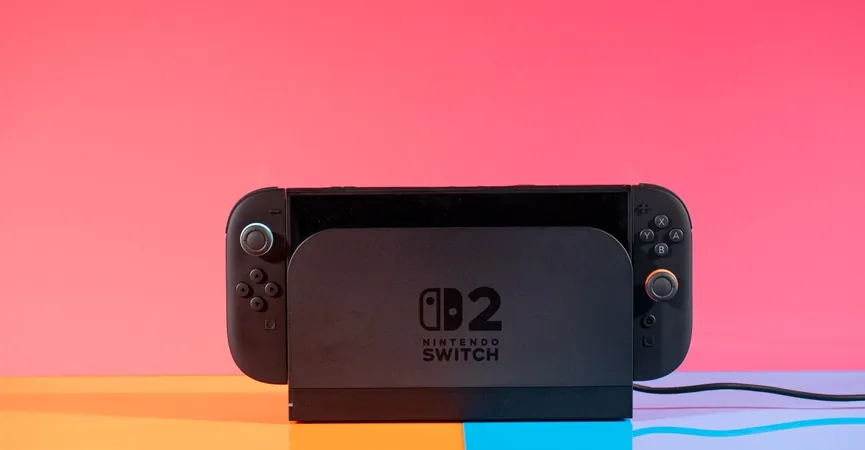
Nintendo's Bold Strategy Amid Soaring Game Development Costs
2025-07-07
Author: Ling
Nintendo Faces Rising Development Costs
As the gaming industry evolves, so do the demands for bigger and more intricate games, especially with the anticipated Switch 2. Nintendo has been proactive, reassessing its development strategy in light of these skyrocketing costs.
President Furukawa Addresses Shareholders
In a recent shareholders meeting, Nintendo’s president, Shuntaro Furukawa, candidly acknowledged the increasing scale and duration of game development, which translates into higher production costs. He emphasized, "The game business has always been a high-risk venture, and we understand that rising development costs amplify that risk."
Staying True to Tradition with Innovation
Despite these challenges, Furukawa reassured attendees that Nintendo's development teams are exploring ways to uphold their traditional game development ethos while adapting to the changing landscape. He stated, "We are focused on making necessary investments for more efficient development processes."
Ambitious Projects on the Horizon
The early roster for the Switch 2 is already showcasing Nintendo's ambitious vision. Mario Kart World embraces an open-world experience, while the upcoming Donkey Kong Bananza promises exciting destructible environments, marking a leap forward for the franchise. However, such innovations come at a cost, with Mario Kart World retailing at $79.99 and the Switch 2 priced at $449.99.
Monitoring Consumer Accessibility
Furukawa addressed concerns about affordability, particularly for younger gamers, stating that they are closely observing how these price shifts may affect access to their platforms.
Industry Challenges and Nintendo's Unique Position
Nintendo isn't alone in facing these headwinds. Competitors like Microsoft are undergoing significant layoffs and project cancellations as the financial pressures of high production values take their toll. Meanwhile, Nintendo remains one of the few resilient players in the industry, but sustaining this momentum is becoming increasingly challenging.
Exploring Shorter Development Cycles
To combat rising costs, Furukawa posited an intriguing solution: focusing on smaller games that can be developed in shorter timeframes while still delivering novelty to gamers. "We see this as a potential pathway to address concerns around escalating development costs and retail prices, and we will explore it further within the company," he concluded.
 Brasil (PT)
Brasil (PT)
 Canada (EN)
Canada (EN)
 Chile (ES)
Chile (ES)
 Česko (CS)
Česko (CS)
 대한민국 (KO)
대한민국 (KO)
 España (ES)
España (ES)
 France (FR)
France (FR)
 Hong Kong (EN)
Hong Kong (EN)
 Italia (IT)
Italia (IT)
 日本 (JA)
日本 (JA)
 Magyarország (HU)
Magyarország (HU)
 Norge (NO)
Norge (NO)
 Polska (PL)
Polska (PL)
 Schweiz (DE)
Schweiz (DE)
 Singapore (EN)
Singapore (EN)
 Sverige (SV)
Sverige (SV)
 Suomi (FI)
Suomi (FI)
 Türkiye (TR)
Türkiye (TR)
 الإمارات العربية المتحدة (AR)
الإمارات العربية المتحدة (AR)